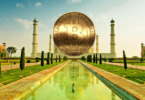When PM Narendra Modi announced the ban of Rs 500 and Rs 1000 currency notes on Tuesday evening – a ban the government imposed overnight – he aimed at curbing black money. According to many, the move is likely to boost digital or cashless currency in India. In fact, digital payments companies rejoiced the move, broadly terming it as ‘cash is dead’. While the move is likely to drive digital payment [to some extent] in reality, cash may not be dead soon.
Towards cashless payment?
The immediate announcement of the ban fuelled speculations that people will soon push more digital transactions and will use virtual wallets and other digital payments rather than filling their purses and pockets with Rs 100 notes. As experts believe, the biggest boost could be Paytm and Ola Money where people are expected to recharge their wallets to access cashless Uber and Ola rides.
“We welcome this extremely bold and much needed step by Prime Minister Modi and the government to cure us from disease of cash in our society. I along with Payment Council and India greatly admire this move and provide our full support,” said Naveen Surya, chairman, Payments Council of India.
Another quick response was issued by Bipin Preet Singh, CEO of MobiKwik who calls it the biggest surgical strike on the menace of cash. He believes within a 50 day period a billion Indians will change their payments behaviour moving from cash only to a cash-free economy.
Others believe the excitement around digital economy is premature as the PM soon followed up saying that new Rs. 500 notes are going to be issued, and a brand new denomination of Rs. 2,000 will soon be in circulation as well.
Needless to say, the digital payments and virtual wallet companies that were been forever engaged in a tough fight with cash in their efforts to promote digital transactions, sees this as a big boost to their business opportunities.
“We welcome the Government’s bold and courageous move to weed out black money, which will have significant long term benefits for the economy. With this, the quantum of India’s economy moving through the digital pipes will witness massive growth. Both Snapdeal and FreeCharge are committed to supporting all such initiatives.” Kunal Bahl, Co-founder & CEO Snapdeal said in an email statement.
Agreed Manavjeet Singh, CEO & Founder, Rubique, an online marketplace for financial products, “This is a promising move made by the government towards cashless economy. This will boost innovation in the nascent electronic payment industry. Without doubt, this will bring down frauds and thefts and costs of printing cash. A great blow to black money. If executed well, the costs of doing transactions between buyers and sellers will lower significantly by 2019,” he said.
Not without challenges
While many believe that the biggest boost could be where people are expected to recharge their wallets to access cashless, Sathvik Vishwanath, CEO and Co-Founder, Unocoin noted, ”The intentions are good but very difficult to achieve. If going cashless is the only way forward, certainly the bitcoin which is border less and transparent currency makes more sense.”
At the same time, not all companies are comfortable with the decision. Satyam Kumar , Co-founder, Loantap, a fin-tech startup questioned, “What happens to Bharat with 46% unbanked population? Is #rbi geared for this, will it derail manufacturing recovery which is in early stage? Is #indianbanking prepared? Will #namo bite the dust this time?”
The move can also be challenging for several small businesses in the country, who use higher denomination notes for their transactions. For the next few days, even e-commerce companies may see some hurdles with their cash on delivery orders. While at the same time ATMs will be closed for the next 24 or 48 hours, creating havoc for banking transactions. Also customers who do not have Rs. 100 notes stockpiled right now will face problem. However, these are certainly temporary moments and the hardship may lead to a more transparent economy in the near future.
While some call it the watershed moment in Indian finance, it needs to be seen how exactly the government and the banks manage the mad rush and all the logistics issue of this massive overhaul.
Source: http://www.cxotoday.com/story/digital-payment-cos-rejoice-as-modi-bans-rs-500-rs1k-currency/







